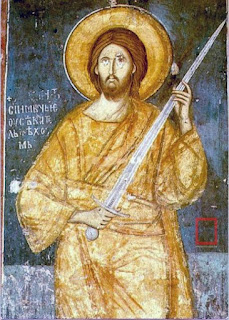Today the Church celebrates the Solemnity of Saints Peter and Paul. Here is a reflection by Pope Francis:
Peter and Paul were free because they were set free. Let us reflect on this central point.
Peter, the fisherman from Galilee, was set free above all from his sense of inadequacy and his bitter experience of failure, thanks to the unconditional love of Jesus. Although a skilled fisher, many times, in the heart of the night, he tasted the bitterness of frustration at having caught nothing (cf. Lk 5:5; Jn 21:5) and, seeing his empty nets, was tempted to pull up his oars. Though strong and impetuous, Peter often yielded to fear (cf. Mt 14:30). Albeit a fervent disciple of the Lord, he continued to think by worldly standards, and thus failed to understand and accept the meaning of Christ’s cross (cf. Mt 16:22). Even after saying that he was ready to give his life for Jesus, the mere suspicion that he was one of Christ’s disciples led him in fright to deny the Master (cf. Mk 14:66-72).
Jesus nonetheless loved Peter and was willing to take a risk on him. He encouraged Peter not to give up, to lower his nets once more, to walk on water, to find the strength to accept his own frailty, to follow him on the way of the cross, to give his life for his brothers and sisters, to shepherd his flock. In this way, Jesus set Peter free from fear, from calculations based solely on worldly concerns. He gave him the courage to risk everything and the joy of becoming a fisher of men. It was Peter whom Jesus called to strengthen his brothers in faith (cf. Lk 22:32). He gave him – as we heard in the Gospel – the keys to open the doors leading to an encounter with the Lord and the power to bind and loose: to bind his brothers and sisters to Christ and to loosen the knots and chains in their lives (cf. Mt 16:19).
All that was possible only because – as we heard in the first reading – Peter himself had been set free.



































